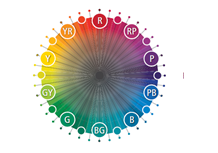All the activities involved in procuring export order of any garment of any particular design for a specific quantity, analysis with specific attention to required quality level, production scheduling & exporting the garments within fixed time frame may be called merchandising. After receiving an order, the merchandiser with the help of pattern master calculates the total consumption of fabric. Then according to the cost detail sheet and the price mentioned by the buyer costing is done. After the price is negotiated with the buyer order is placed to the suppliers of raw material and accessories.
The manufacturing factory as per the requirement suppliers the fabric and a ledger is maintained regularly to assess the production status. The accessories such as label, button, zipper, sewing thread, packing materials are collected from outside[sometime mentioned by the buyer] through back-to-back L/Cs. The merchandising department also looks for the sources for procuring yarns to produce fabric. Merchandising section monitors the production status regularly and ensures timely delivery of the shipment.

Job responsibilities of Merchandising Team:
1.DEVELOPMENT AND COSTING:
Ø Reviewing the development packs RCVD from buyer.
Ø Put the developments into work with product development team.
Ø Clarify all necessary info with buyer as much as possible.
Ø Follow up on the delivered sample deadline.
Ø Work out the initial costing (all costing must be checked by merchandising
manager)
Ø Price negotiation with buyer.
Ø Follow up with buyer reg. the feed back of the sample and costing
2. ORDER CONFIRMATION:
Ø Quoting the delivery dates to buyer after checking factory’s
capacity
situation.
Ø Checking all the details in the order sheet once received form buyer.
Ø Communicate with buyer reg. any discrepancy in the order sheet.
Ø Passing the correct order sheet to all concerned dept. i.e. planning,
production, commercial etc.
3.SAMPLING:
Ø Updating production development team reg. different sample requirement
of buyer at various stage (sales man, fit , sz set, pp sample etc)
Ø Coordinating all fabric + trims which are required for sampling purpose.
Ø Coordinating print, embroidery, wash for sampling.
Ø Checking all the technical aspects of samples before releasing to
customer.
Ø Checking all the aesthetic aspects of samples before releasing to customer
Ø Checking the quantity requirement of each sample.
Ø Checking the necessary paper work of reach sample.
Ø Follow up the buyer reg. each sample comments.
4.BULK FARBIC BOOKING:
Ø Work out the consumption for each new styles from CAD.
Ø Provide fabric booking to fabric department with correct quantity and all
necessary information.
Ø Follow up on the lab dips/ strike off submission and chase approval
comments.
Ø Follow up on the fabric delivery against critical path
Ø Follow up on all fabric approval related issues.
Ø Prioritizing the fabric delivery schedule based on the garment delivery
dates.
5.BULK TRIM BOOKING:
Ø Preparing the cost sheet/ check list for individual trims required for a
style.
Ø Chasing the trim details from the buyer.
Ø Submitting required trims to buyer for approval.
Ø Provide booking for individual trims to the approved source.
Ø Chasing the P/I from the most ensure on time delivery.
Ø Monitoring the B/B L/C or TT payment status.
Ø Sourcing all trims form the most commercially viable source.
Ø Follow up with suppliers to ensure on time delivery.
Ø Liaise with store in order to ensure all trims RCVD in correct quantity and
quality.
6. ESTABLISHMENT :
Ø Chasing the correct artwork for all print/embroidery from buyer.
Ø Developing the design in the best possible method
Ø Provide capacity booking to print /embroidery plant in advance.
Ø Submitting print/embroidery strike off for buyer’s approval
Ø Passing approved copy of the strike off to the print/embroidery plant.
Ø Negotiating the price with the subcontractors.
Ø Monitoring the panels sent and receive dates to ensure smooth
production flow
7. FILING & CORRESPONDENSE:
Ø Maintaining style file for all running orders
Ø Maintaining the development file.
Ø General correspondence with buyer and suppliers.
Ø Critical correspondence with buyer and suppliers
Ø Weekly updates for buyer, such as audit schedule, production status etc.
8. MEETING:
Ø Meeting with foreign buyers and suppliers.
Ø Meeting with local buyers and suppliers.
Ø Internal meeting with production, planning, quality, commercial and HRD.
Ref. :
Photo Attributes :
- Photo by Leon on Unsplash
- Photo by Annie Spratt on Unsplash




